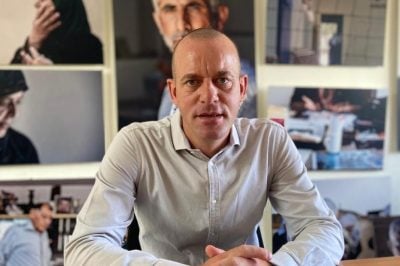Israel’s ‘Silent Transfer’ of Palestinians Out of Palestine

As more Arab countries normalise relations with Israel, it presses on with a policy of “silent transfer” – an intricate system that targets Palestinians in occupied East Jerusalem with residency revocation, displacement through house demolitions, barriers in obtaining building permits, and high taxes.
Palestinian researcher Manosur Manasra notes Israel launched this policy of transfer against Palestinians in East Jerusalem almost immediately after the 1967 war and the subsequent occupation of the eastern part of the city.
The policy continues to this day with the aim to dominate East Jerusalem.
Land expropriation for Jewish settlements has taken place around East Jerusalem and in the heart of Palestinian neighbourhoods such as the Old City’s Muslim and the Christian Quarters and beyond in Sheikh Jarrah, Silwan, Ras al-Amoud and Abu Tur since as early as 1968.
Following the June 1967 war, Israel applied Israeli law to East Jerusalem and granted Palestinians “permanent resident” status. However, in effect, it is a fragile one. B’tselem, the Israeli human rights information centre in the occupied Palestinian territories describes this status as one “accorded to foreign nationals wishing to reside in Israel”, except that Palestinians are indigenous to the land.
Palestinians of East Jerusalem do not have a right to automatic Israeli citizenship nor are issued Palestinian passports by the Palestinian Authority (PA). They are usually able to obtain temporary Jordanian and Israeli travel documents.
By allotting a fragile residency status to Palestinians in East Jerusalem, Israel has succeeded to revoke and subsequently uproot more than 14,200 Palestinians from East Jerusalem since 1967. These measures coincide with an aggressive house demolition practice.
Home demolitions in the West Bank did not stop despite the coronavirus pandemic.
According to the United Nations, there was a nearly fourfold increase in the number of people displaced from January-August 2020, and a 55 percent rise of structures targeted with demolitions or confiscations compared with a year earlier.
In East Jerusalem, 24 structures were demolished last month, half of them by their owners following the issuance of demolition orders by the Jerusalem municipality.
The “permanent residency” status is maintained as long as Palestinians keep a physical presence in the city. However, in some cases, the Israeli authorities move to withdraw the residency status of Palestinians in East Jerusalem as a retribution measure because they are political dissidents. Israel’s pursuit of Palestinian activists is extensive and does not exclude any faction.
The most recent case is that of 35-year-old Salah Hammouri, a lawyer and activist. Arye Deri, Israel’s interior minister, says Salah is a member of the Palestine Front for the Liberation of Palestine (PFLP). Israel outlawed the group and wants him out of the country.
In some cases, Israeli authorities cancel the residency permits of spouses of political activists as a punishment. Shadi Mtoor, a Fatah member from East Jerusalem, is currently fighting a case in the Israeli courts to keep his wife’s residence in East Jerusalem. She is originally from the West Bank.
In 2010, Israel revoked the Jerusalem residency of four senior Hamas members – three of whom were elected to the Palestinian Parliament in 2006 and one who served as a cabinet minister – on the grounds they pose a danger to the state. Three live in Ramallah now and one is under administrative detention. A hearing at the Israeli High Court is scheduled for October 26.
In some cases, Israel does not issue a residency ID for a child whose father is from Jerusalem and mother from the West Bank.
International law explicitly condemns the forcible transfer of civilians.
“Ultimately our decision is to remain in this city,” says Hammouri.
Click here to read full article.
*
Note to readers: please click the share buttons above or below. Forward this article to your email lists. Crosspost on your blog site, internet forums. etc.
Featured image: Salah Hammouri, a lawyer and activist, has had his residency status for East Jerusalem threatened by Israeli authorities [Courtesy: Salah Hammouri]

